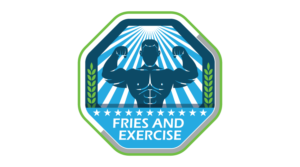Children frequently experience the symptom of coughing, which can be upsetting for both children and parents. The appropriate cough medicine can provide your child with much-needed relief, but it’s important to comprehend the options and use them responsibly. We will examine the many forms of cough medicine for kids in this guide and offer insightful information to assist you in making selections that are best for your child’s health.
Understanding the Fundamentals of Treating Cough Issues
Children’s coughs are frequently brought on by respiratory illnesses, allergies, or irritants like smoke or dust. Although a cough is the body’s way of emptying the airways, it can be irritating and interfere with a child’s sleep and daily activities if it is chronic or severe. When it comes to choosing a cough medicine for your child, you can’t beat the convenience of a doctor’s office.
Children’s Cough Medicines: Types
Cough suppressants and expectorants are the two main forms of cough medicine that are appropriate for youngsters. Cough suppressants work by lessening the urge to cough, relieving dry and fruitless coughs. However, expectorants aid in liquifying mucus, which facilitates coughing and helps kids with productive coughs clean their airways.
Age-appropriate Medication: Its Importance
When choosing a cough medicine for kids, age is an important consideration. It’s important to follow the suggested rules because different drugs are designed for different age groups. Never give children adult cough medications because the dosage and ingredients may not be suitable for their age group. Always carefully read the labeling and adhere to the pediatrician’s or the drug’s manufacturer’s recommended dosage schedule.
Natural Cough Relief Methods
Although cough medications might be helpful, some parents prefer using natural methods to treat their child’s cough. For instance, honey is a tried-and-true home treatment with a reputation for reducing coughs. Children older than one years old can take it if they mix it with warm water or herbal tea. However, honey should never be given to infants younger than one year old due to the potential for botulism.
Precautions for safety and possible negative effects
There are possible negative effects with cough medicine for kids, just like with any other prescription. Drowsiness, stomach upset, and allergic reactions are examples of typical side effects. Following medication administration, it’s critical to keep an eye on your child and get medical help if any negative side effects develop.
Avoiding Codeine-containing Cough Medicine
In the past, several pediatric cough medications included the narcotic codeine. The American Academy of Pediatrics (AAP) and other medical associations, however, strongly discourage using codeine-containing drugs for children due to safety concerns. Particularly in children with certain genetic characteristics that alter how their bodies absorb the medicine, codeine can result in severe side effects, including decreased breathing and even death.
Pros and Cons of Combination Cough Medicines
Combination cough medications frequently have a blend of active chemicals that tackle several symptoms. Although they might be useful, they could also make accidental overdose or adverse effects more likely. It’s crucial to refrain from administering numerous drugs to your youngster at once without a healthcare provider’s supervision.
Conclusion:
Safety and age-appropriateness are key factors when selecting cough medicine for kids. Before giving your child any medication, always talk to a pediatrician. You should also carefully check the labels to be sure you’re giving the proper amount. Natural cures can also offer comfort, but they should be used with caution and in accordance with medical guidance. You can support your child’s overall wellbeing while assisting them in finding solace and alleviation from coughing by being knowledgeable and careful.
